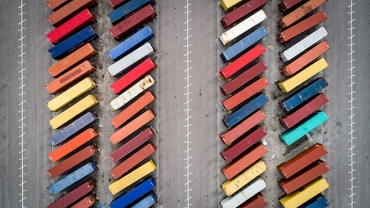
China Export Control Law to take its effect per 1 December 2020
04/12/20
An update of this article is available: Update on the China Export Control Law – lists updated and/or published.
On the 17th of October 2020, the People's Republic of China Export Control Law (ECL) was passed by the Standing Committee of China’s National People’s Congress, which has taken its effect as of the 1st of December 2020.
Similar to the EU Export Control Regime, the ECL covers, among others, dual-use items, military items and sensitive technologies. In addition, it is good to note that next to the aforementioned controlled items, also services are explicitly included in the ECL as controlled items.

What does this mean for your business?
It is worth mentioning that based on the ECL, any (foreign) organization or individual can be held liable for violations of export control regulations in China. In addition, any individual or organisation that threatens China’s national security and national interests and/or prevents the performance of non-proliferation and other international obligations can be held liable for such a violation. The ECL therefore has extraterritorial effect and can as such impact any individual or organization in the world involved in international trade.
In addition, please note that, next to the export control lists formulated, temporary control of goods that in principle fall outside of the scope of these lists, can be implemented. It is therefore important to monitor the developments of the ECL, including the export controls lists formulated, to ensure timely action can be taken.
To be able to export controlled items, exporters are required to apply for relevant licenses from the competent authority in China. In addition, the exporter needs to submit end-user and end-use documents of controlled items to the export control management authority. In the next paragraph, we will, amongst other topics, describe the controlled items and activities.
What could impact your business?
Controlled items
The ECL applies to controlled items, to technical information and other data related to controlled items. Controlled items covered by the ECL are:
- dual-use items,
- military items,
- nuclear items and
- other goods, technologies, services and items relating to the maintenance of national security and national interests and obligation of anti-proliferation and other international duty.
Controlled activities
Controlled activities under the ECL include:
- The transfer of controlled items from within China to other countries;
- The provision of controlled items by Chinese citizens and legal organizations to foreign organizations and individuals and
- The transit, trans-shipment, and re-export of controlled items, as well as the export of controlled items, from special customs supervision zones (e.g., bonded areas or export processing zones) and bonded supervision places (e.g., export supervision warehouses or bonded logistic centres).
Control list covering importers and end-users
As mentioned, control lists (of items) can be formulated and published (whether or not temporary). Next to this, the State's competent export control management authority is, based on the ECL, also authorized to establish and issue control lists that cover importers and end-users who have:
- violated end-users or end-use management requirements;
- potentially harmed national security interests or,
- used controlled items for terrorism purposes
The State's competent export control management authority can as such restrict, prohibit or suspend transactions of controlled items to take place with importers and end-users included on the list. The previous entails that exporters are in principle not allowed to be involved in trade with any of these restricted/prohibited organizations/individuals, unless an application (with substantiation of the necessity) is submitted to and approved by the competent authorities. It is further good to mention that an importer or end-user mentioned on the controlled list, can request for a removal from the list at the competent authorities, if it can sufficiently substantiate that the appropriate measures are taken to ensure that the requirements will not be violated anymore.
Penalties
Please note that violations of the ECL may be sanctioned with administrative or criminal penalties, which include fines, revocation of export business license of relevant controlled items, restrictions or even prohibitions from engaging in relevant export activities for life.
How can we help?
With the new ECL entering into force, companies involved in international trade should start assessing the applicability of the ECL on their business, including the potential risks and consequences. In addition, it can be worthwhile to explore the necessity and the possibility of implementing a trade automation system, to ensure that your business is compliant with rules of the ECL and also with export control regulations of other countries. Together with our export controls specialists in China, we can assist with assessing the impact of the ECL on your business and provide guidance on the interpretation of the rules.
Contact us




















